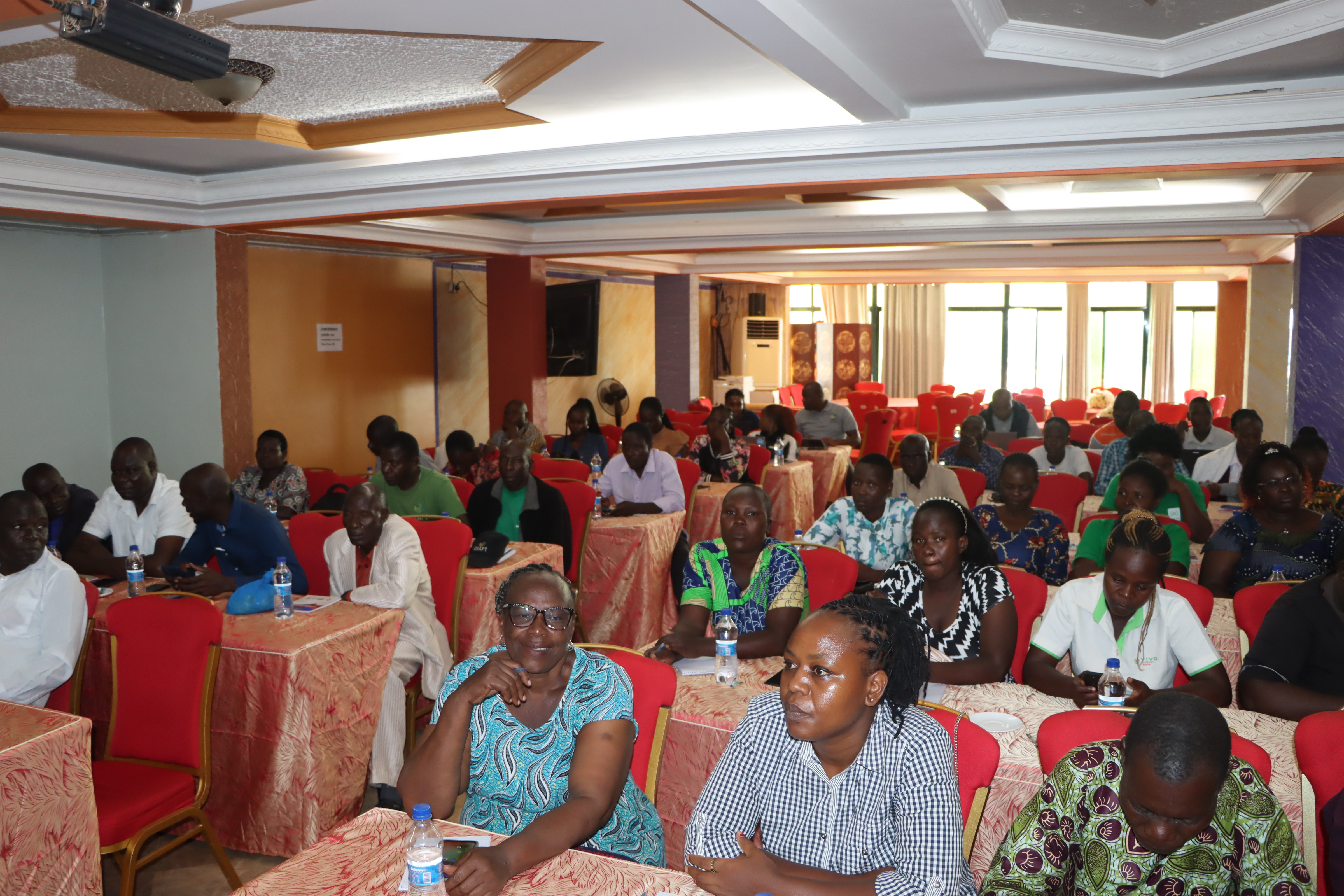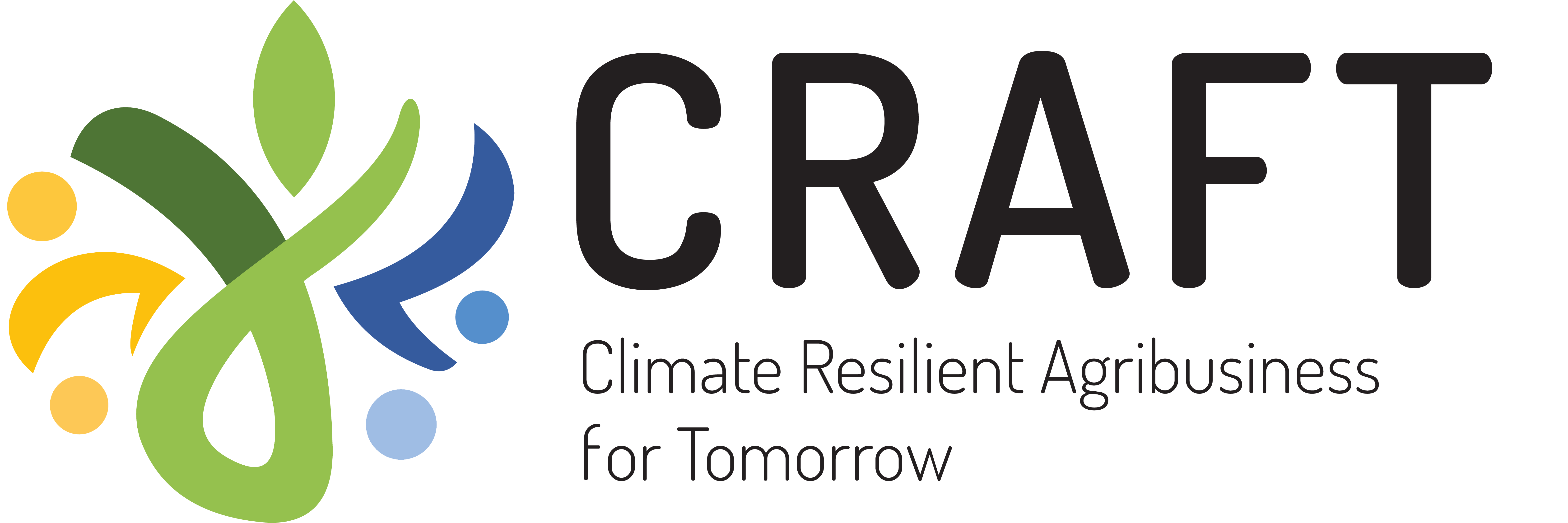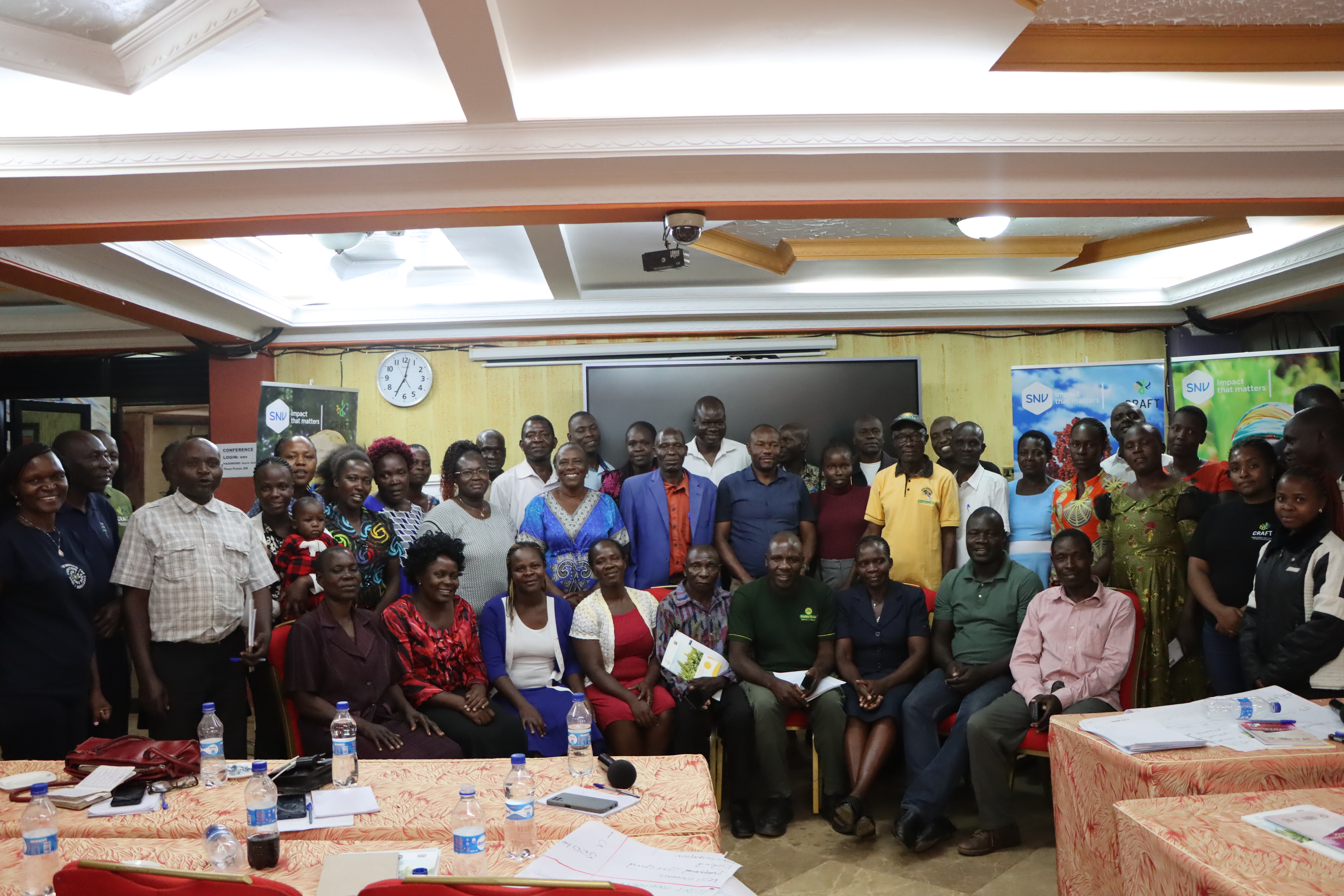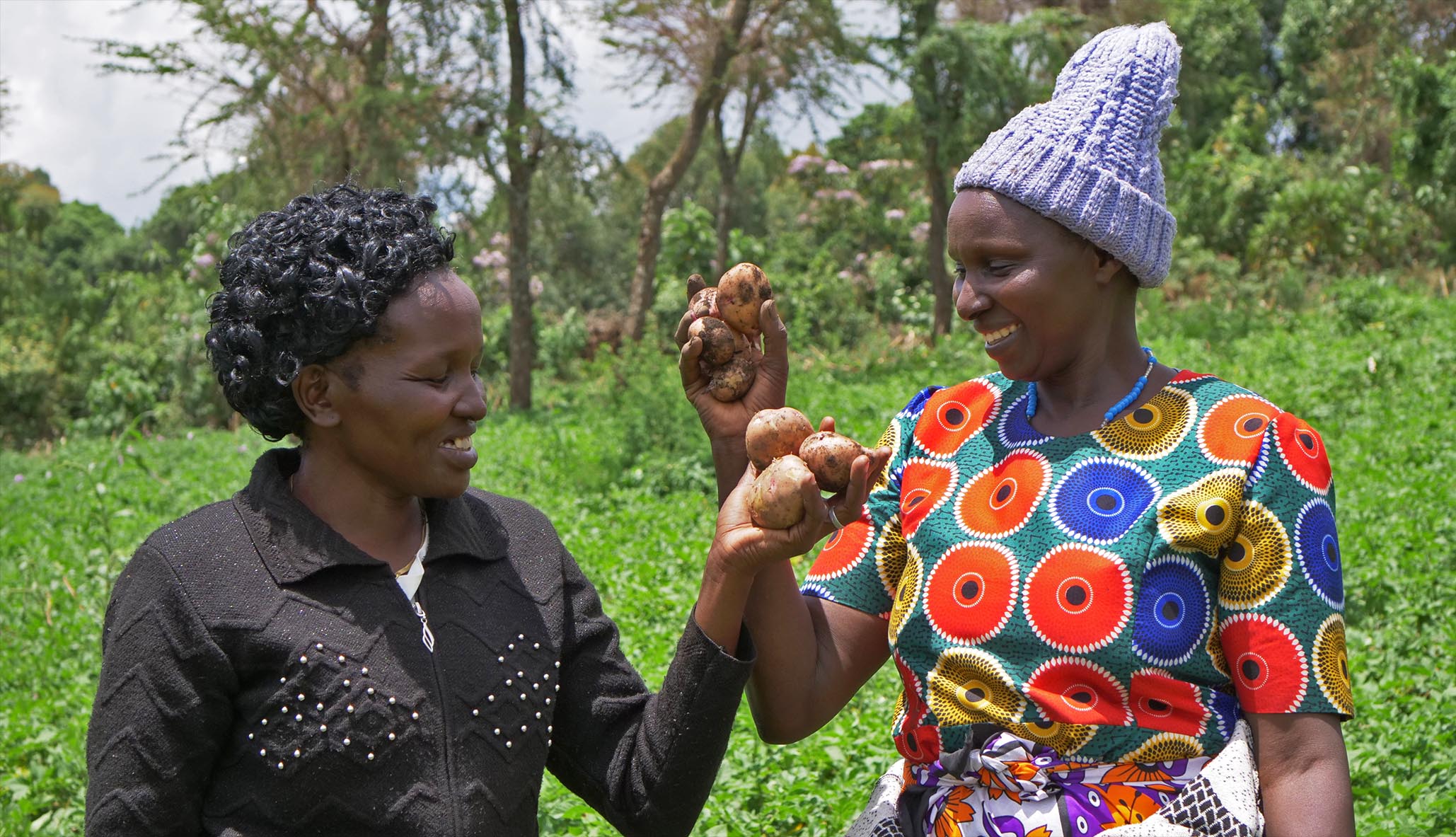14 Jan 2025 | Busia Town | Busia County. CRAFT and SOPA Millers Limited farmer CRAFT and SOPA Millers Limited farmer refresher training, 2024 annual review and GESI assessment.
Introduction
The CRAFT project in Kenya is focused on strengthening the resilience of smallholder farmers (SHFs) against the impacts of climate change by introducing Climate Smart Agriculture. This is being achieved by encouraging sustainable agribusiness models and embedding climate-smart practices throughout agricultural value chains. However, SHFs continue to face major hurdles, such as unpredictable climate conditions, restricted access to high-quality inputs, limited credit options, and inadequate infrastructure like irrigation systems and storage facilities. These problems are further aggravated by insufficient access to markets, high post-harvest losses, and socio-economic issues such as gender disparities and the exclusion of youth. Tackling these challenges is essential to enhancing the adaptive capacities of SHFs and fostering more resilient agricultural systems.
Climate Smart Agriculture aims for improved food security by working towards climate resilient farming systems which increase productivity under changing climatic circumstances, while reducing food waste and losses throughout the supply chain. By adopting climate smart and ecologically sustainable production improvements the productivity of the existing food crop production and supply systems can be markedly improved.

Refresher Training
On the week of 13 -18 January 2024, the CRAFT project hosted a refresher training for Trainer of Trainers (ToTs) and Lead farmers from Busia and Bungoma counties under the SOPA Millers grantee Business Champion. The training brought together 17 ToTs, 26 Lead farmers and 3 Ward Agricultural Officers and was geared towards building their capacity on climate change and Climate Smart Agriculture interventions.
The participants will cascade the trainings to smallholder farmers in their communities with the goal of improving their capacity to adopt CSA techniques that improve productivity, resilience and mitigation to climate change, and improving their economic viability. The training emphasized the integration of CSA practices into different cropping patterns, promoting sustainable agriculture through demonstrations and in-depth discussions on field and crop management, improved seeds, soil health, pest and disease control, farm mechanization, harvesting and post-harvest management, value addition and market-driven strategies.
The training also had an in-depth session focused on Climate Smart sorghum production, where a comparative analysis was made with other cereals especially maize, a dominant crop in the area. Key was sorghum's management and unique advantages, especially its ability to thrive in more a challenging and drier climate, its capacity to enter dormancy during dry seasons and regenerate once conditions are favorable. These characteristics are key for food security by ensuring reliable yield in variable climates and improving farmer economic benefits and incomes. By adapting to such conditions, sorghum presents itself as a resilient crop choice, promising both sustainability and profitability in the face of climate change.
The training focused on an integrated farming systems approach with the entry value chain being sorghum. The grantee: SOPA millers utilizes several value chains such as cassava, millet, soya, arrow roots, sweet potatoes and groundnuts to create nutrient rich value-added products. They are keen on supporting the farming system by off taking different crops from farmers ensuring ready market for produce. CSA trainings spilled over to other value chains ensuring high quality and quantity harvest which will eventually improve food security, increase farmers income and improve livelihoods and increase business performance for SOPA Millers Limited.
Soil Nutrition Management - The participants were taken through the 4Rs of Stewardship – Right time, Right Rate, Right Placement, Right Source.
The participants were advised on the critical need for timely planting. One way of understanding the right timelines is through access to weather advisories. The participants were advised to seek weather information from reputable institutions whose sources can be traced; this is good for making informed decisions. However, the question arose as to whether which one offers more confident information, climate sources or traditional weather forecasting. Understanding that CSA investment might be higher at the initial stages, however, with time, it the cost goes to almost nil.
The farmers were also taken through a gross margin analysis to understand the economic viability of the different value chains. By carrying out a gross margin analysis, they can gain a clearer picture of their farming investment and profitability margins, allowing them to make informed decisions that enhance profitability and sustainability.
The training also had a GESI sensitization session where farmers were taken through a Power Walk to identify roles and power dynamics at household level. The simulation helped them experience what it's like to be in a position of power or powerlessness based on different factors. The team conducted a GESI assessment that included beneficiary stories, FGDs and KIIs which will inform targeted interventions for different groups. This assessment targeted Elderly Men, Married Women, Youth and Persons with Disability.

Issues arising from farmers
- Markets! Markest! Markets! It was clear that the current market status is unstructured, and farmers may not be exactly getting what they have bargained for.
- Inadequate supply of certified seeds. Farmers are advised to re-use seeds to a maximum of three planting seasons.
- Weeds like striga is an issue. It was noted by one of the extension officers that striga grows mostly in acidic soils.
- Price – Some off takers offer higher prices than what SOPA millers agreed at the start. At the end of the day, farmers go for the off taker offering higher prices.
- Inadequate volumes – Farmer groups cannot produce adequate output, to add, they are far flung, making it difficult to aggregate.
- Some county government policies hinder expansion and cause delays I.e. some aggregation centers are yet to be commissioned because of issues at the county level.
By Harold Odoro










